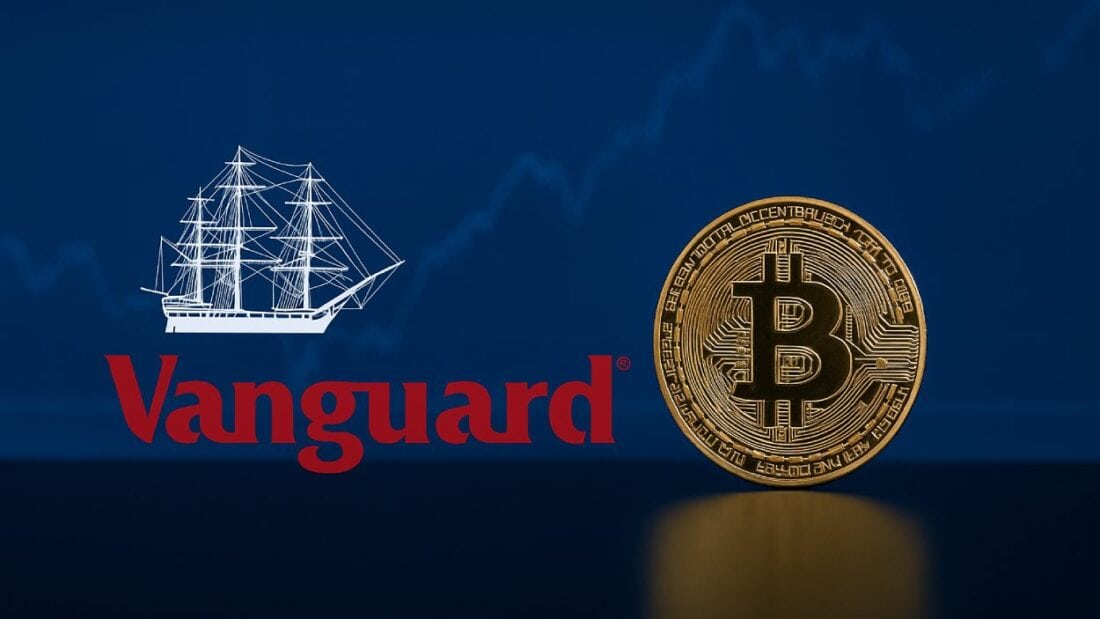Vanguard is reportedly exploring the possibility of allowing its US brokerage clients to access third party cryptocurrency exchange traded funds (ETFs), representing a notable departure from its long standing avoidance of crypto investment products.
Key Takeaways
- Vanguard, historically cautious on digital assets, is weighing giving brokerage clients access to crypto ETFs
- The shift is driven by client demand, a new CEO with crypto experience, and a regulatory environment that is becoming more favorable
- Vanguard would not issue its own crypto funds but may allow access to select third party ETFs
- Timing, product selection, and regulatory compliance remain major considerations for Vanguard
What Happened?
Vanguard, a $10 trillion asset manager, is reportedly reevaluating its resistance to cryptocurrency products and preparing to grant its brokerage clients access to crypto ETFs. Until now, the firm had declined to offer digital asset exposure on its platform, citing volatility and a mismatch with its long term investment philosophy. Under CEO Salim Ramji, a former BlackRock executive who oversaw cryptocurrency product launches, Vanguard seems poised to reconsider that stance.
If Vanguard proceeds, the access will likely be limited to third party ETFs rather than Vanguard launching its own crypto funds. The firm is taking a methodical approach, weighing regulatory risks, client demand, and how to integrate such products in line with its brand.
🚨SCOOP: Vanguard Eyes Crypto ETF Access for Brokerage Clients
— Eleanor Terrett (@EleanorTerrett) September 26, 2025
The world’s second-largest asset manager, @vanguard, is preparing to allow access to crypto ETFs on its brokerage platform, according to a source familiar with the matter.https://t.co/MDOft0PLXN
A cautious past
Vanguard has long maintained a conservative posture on cryptocurrencies. In January 2024, when the first spot Bitcoin ETFs launched in the US, Vanguard publicly declined to offer them on its platform, citing high volatility and concerns over long term investor outcomes. In that same spirit, it removed Bitcoin futures from its offerings in 2024.
A new leadership influence
The appointment of Salim Ramji as CEO has reshaped expectations. Ramji was deeply involved in BlackRock’s crypto ETF effort, particularly the iShares Bitcoin Trust (IBIT). His experience could accelerate Vanguard’s shift to offering crypto access, even if indirectly.
In public remarks, Ramji has reaffirmed that Vanguard has no plan to create its own crypto ETFs, but he has not ruled out permitting access to third party products.
Why Vanguard Might Be Changing Course
Client demand
Investor interest in crypto continues to grow. Many clients now expect regulated and familiar investment vehicles like ETFs to gain exposure to digital assets.
Competitive pressure
Several large financial firms already provide crypto access. Morgan Stanley has planned to enable crypto trading via E*Trade. BlackRock and Fidelity have introduced their own crypto ETFs, with substantial inflows. Vanguard may need to respond or risk losing ground to competitors.
Evolving regulation
Regulators in the US have recently introduced reforms to streamline the approval of crypto ETFs. The Securities and Exchange Commission (SEC) now allows generic listing standards for commodity based ETFs, cutting approval timelines. This regulatory clarity reduces a key barrier for firms like Vanguard.
Challenges Vanguard Will Face
- Product selection: Vanguard must choose which third party crypto ETFs to allow, likely favoring those with strong liquidity, reputation, and transparency.
- Client risk management: Balancing its brand promise of low cost and long term investor protection with the volatility of crypto.
- Regulatory compliance: Ensuring adherence to SEC and CFTC rules, especially amid evolving guidelines.
- Adoption uncertainty: It is unclear how many existing Vanguard clients will embrace crypto exposure.
CoinLaw’s Takeaway
I see this as a cautious but meaningful pivot from one of the most influential firms in asset management. Vanguard’s conservative ethos has long been a strength, but in a world where digital assets are inching into mainstream portfolios, staying on the sidelines may no longer be sustainable. If it opens access via third party ETFs, it could catalyze broader institutional adoption and normalize crypto exposure in traditional portfolios. In my experience observing asset managers, once a name like Vanguard moves, others tend to follow fast.


































































